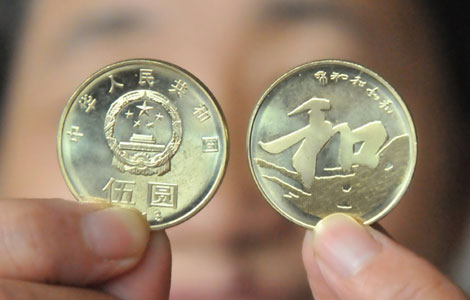|
||||||||
Economic reforms have been high on the agenda since China announced its new leadership during the National People's Congress session in March. With an ongoing slowdown in growth, the Chinese government's commitment to addressing fundamental issues in the economy - instead of resorting to stimulus - has gained the applause of economists.

In two recent papers published by Deloitte, the company's global chief economist Ira Kalish said it is notable that China has taken a "first tentative step" in the direction of financial market liberalization.
"The most immediate issue is financial market reform and liberalization," said Kalish, referring to keeping the Chinese economy sustainable.
"There may also be a need to resolve troubled financial institutions that hold non-performing loans," he added.
Back in June when a credit crunch hit China's banking system, it raised fears from investors that what happened to the US during the 2008-09 financial crisis could hit the world's second-largest economy, too. The country has since then focused on how to prevent crises that could shake its economy by laying out some specific steps.
But the central bank didn't do anything to liberalize deposit rates - something that, according to Kalish, is the "most important thing".
"This will increase competition among banks and boost bank deposits," Kalish explained.
Most analysts see liberalization of deposit rates as more critical to rectifying the imbalances and inefficiencies of financial markets, and it would remove the incentives behind the massive growth of the shadow banking system, Kalish noted in his paper.
Brendan Ahern, managing director of KraneShares, a New York-based boutique asset management firm delivering China-focused, exchange-traded funds to US investors, said what the central bank has done could be in preparation for upcoming moves.
"The Chinese government has taken a practical approach that allows the banks and regulators to prepare for further reform in the future," said Ahern. "They are thoughtfully allowing the system to digest reform incrementally.
"The government is focused on the reforms needed for China's economy in the future, as strong financial markets are an important foundation of a strong economy," Ahern added.
In an op-ed by Chinese premier Li Keqiang in the Financial Times yesterday, Li said China will advance reforms of administrative management, fiscal and tax systems, financial sectors and pricing as part of the economic reforms, while maintaining its "sustained and healthy growth".
"We can no longer afford to continue with the old model of high consumption and high investment. Instead, we must take a holistic approach in pursuing steady growth, structural readjustment and further reform," wrote Li.
"The reforms and other opportunities from a transition to a service economy will unleash a new wave of entrepreneurial activity," said Ann Lee, a professor at New York University and author of What the US Can Learn from China.
Emphasizing that reform remains the "driving force", Li said the new leadership will continue to "streamline government and delegate power, press ahead with structural changes and grow economic sectors under diverse ownership."
Contact the writer at zhangyuwei@chinadailyusa.com
(China Daily USA 09/10/2013 page2)
Most Viewed
Editor's Picks

|

|

|

|

|

|
Today's Top News
BlackBerry agrees to bid to go private
FM: China opposes all forms of terrorism
Microsoft shifts tablet plans for China
GSK's China sales may be down 30% on scandal
China to help deal with chemical weapons
China, Africa 'share destiny'
Maryland, Xi'an seek new link
Trending news across China
US Weekly

|

|














